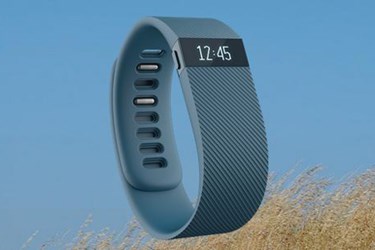Fitbit Facing FDA Scrutiny As It Eyes Clinical Technology

By Christine Kern, contributing writer

As the fitness tracker moves into medical gadgets, it risks flagging the attention of the FDA
The line between health tracker and medical device is blurring, and as Fitbit plans to move further into the clinical technology marketplace it risks flagging the attention of the FDA, according to Bloomberg.
Last year, the Food and Drug Administration (FDA) released draft guidance making clear its intention to closely scrutinize certain sectors of the mHealth wearable market. However, as Health IT Outcomes reported, low-risk wearables, apps, and mHealth devices intended to support general wellness or healthy lifestyle choices will not be included in that scrutiny.
The guidance targeted those apps and devices which track user input and make health claims about the wearable’s ability to provide encouragement or help manage conditions or health attributes without intending to treat or influence a patient’s safety and care.
“General wellness products can include exercise equipment, audio recordings, mobile apps, video games, and other products that are typically available from retail establishments (including online retailers and distributors that offer mobile apps to be directly downloaded),” when the items in question present an insignificant risk to a patient’s safety, FDA officials says.
That original guidance did not include low-risk devices, like the Fitbit, however.
But as Fitbit strives to reinvent itself as a “digital health company,” introducing a heart-monitoring bracelet last year and planning a range of clinical technology products for the healthcare industry in the near future, it may be garnering closer attention from the FDA.
As Bloomberg explained, this is a difficult transition since tracking a person’s vital signs is much more complicated than counting a runner’s paces. In fact, a class-action suit has by filed by consumers in several states claiming the heart-monitoring technology in the Fitbit is “wildly inaccurate,” undercounting heart rates by as much as 75 beats per minute. The suit alleges that this could cause physical harm to users.
Closer regulation from the FDA would present a challenge to Fitbit’s expansion. Charlie Anderson, analyst with Dougherty & Company, told Bloomberg, “It will make things trickier from a timing perspective. If you don’t have to go to the FDA, you can release products when you want to. If you go to the FDA, it depends on when they can approve things.”
Fitbit is currently used by two of the largest U.S. health insurers in diabetes and weight-management programs, and it includes a corporate wellness program to encourage healthier lifestyles through the use of company-issued Fitbits. In the future, Fitbit gadgets could potentially be used to monitor blood pressure, measure glucose levels, and even diagnose disease.
“We’re not there yet,” Chief Executive Officer James Park told Bloomberg, “But we think five to 10 years down the line, the power of these devices to help consumers, healthcare providers, the whole healthcare ecosystem track and give diagnoses to people — I think it’s incredibly tantalizing.”
